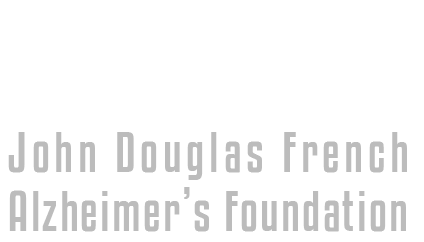Kate Possin, PhD
Associate Professor
Department of Neurology
University of California, San Francisco
Kate Possin was awarded her PhD degree in clinical psychology from the University of California, San Diego, where she studied cognitive changes associated with Parkinson’s disease. She completed her internship in clinical neuropsychology at the UCSF Departments of Neurology and Psychiatry, and she did her postdoctoral fellowship at the UCSF Department of Neurology. She currently holds the John Douglas French Alzheimer’s Foundation Endowed Professorship and is an Associate Professor in Residence in the Department of Neurology and a faculty member at the Global Brain Health Institute.
Research Description
Dr. Possin’s research program is focused on improving the detection, diagnosis and care for people with Alzheimer’s and related disorders. She has two major projects in this area: the Care Ecosystem and TabCAT. The Care Ecosystem is a telephone-based collaborative care model that supports and educates caregivers, helps with medication issues, prepares families for medical, legal and financial issues, and manages challenging behaviors. To develop, test, and implement this model of care, she led a large randomized clinical trial funded by the Centers for Medicare and Medicaid Innovation and the National Institute on Aging. The Care Ecosystem improves patient quality of life and caregiver well-being and reduces emergency room visits. Currently, Dr. Possin is studying the long-term benefits of this care, predictors of treatment effect, and how to support health systems around the country in establishing and sustaining this care model. She works with policy leaders to advance payment models for dementia care.
Dr. Possin’s other major research focus is improving methods for the detection and diagnosis of cognitive disorders. With neuropsychology colleagues Drs. Kramer and Rankin, she developed tablet-based cognitive assessments, along with the software platform “TabCAT.” TabCAT is used to administer the tests on an iPAD, transfer the data to secure servers, and provide access including data download for investigators and electronic medical record integration for clinicians. The TabCAT tests have been developed using rigorous methods from cognitive neuroscience and test development and with a deep understanding of the phenotypes of neurocognitive disorders and the practical limitations of everyday clinical settings. TabCAT has been translated into 18 languages and is used in >65 research studies in >15 countries. She directs the NINDS-funded DetectCID consortium to improve the detection of cognitive impairment, including dementia, in everyday clinical settings.
Personal Story
“While my early work in cognitive science was intellectually fascinating and provided me with important training, I longed to make an impact on the lives of families suffering with dementia. I was drawn to the Memory and Aging Center because of the collaborative scientists, their mission, and the opportunity to receive outstanding mentorship. Since I joined the Memory and Aging Center in 2006, my research has evolved to tackle what I see as the most critical gaps in dementia care. With the formation of the Global Brain Health Institute in 2015, I’ve been fortunate to interact with emerging leaders in brain health from around the world, most from low- to middle-income countries. Now my work is shifting again to focus on the needs of the global dementia community. None of my work would be possible without the love and support of my amazing family, including my parents George and Carol, my husband Andrew, my mother-in-law Nina, and my children Hudson and Eleanor.”

